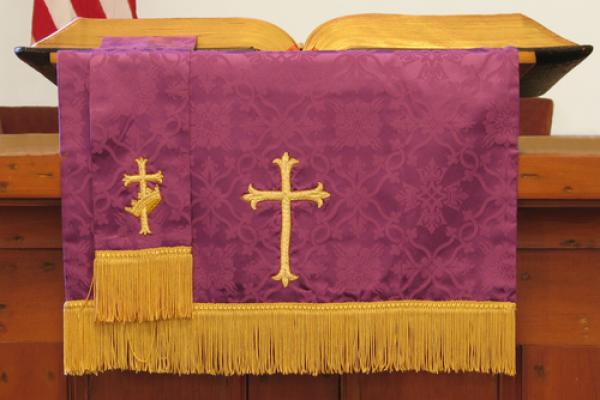A commission of religious leaders has called for clarity in churches’ ability to endorse candidates and issues from the pulpit without fear of losing their tax-exempt status.
In a report sent Wednesday to Sen. Charles Grassley, an Iowa Republican who has spent years investigating the finances of high-profile televangelists, the commission called the regulation of speech of religious organizations “disturbing and chilling.”
“The IRS guidelines are very vague, so ministers and nonprofit leaders are afraid of the [appropriate] line,” said Michael Batts, the independent commission’s chairman. “We think it can be fixed without creating a monster of unintended consequences.”
The Commission on Accountability and Policy for Religious Organizations grew out of Grassley’s probe of ministry finances and makes recommendations for greater transparency and reform. It is overseen by the Evangelical Council for Financial Accountability, which was founded in 1979 as a watchdog on ethical and financial wrongdoing.
In Wednesday’s report, the commission recommended that members of the clergy should be able to say “whatever they believe is appropriate” from the pulpit without fear of IRS reprisal. Since 1954, IRS regulations allow clergy to speak out on issues but they must refrain from endorsing specific candidates.
Additionally, however, the report suggests that churches should not be able to spend additional funds for political communication. Although some have advocated that churches’ tax-deductible funds should be able to be disbursed for political purposes, the commission says that the policy should remain.
IRS enforcement has been inconsistent, the report suggests. A 2012 Pew Research Center study suggests that black Protestant churchgoers are eight times as likely to hear about political candidates at church as white mainline churchgoers.
“The report shows that black churches have, for lack of a better word, gotten away with it for many years,” said Erik Stanley, senior legal counsel for the Alliance Defending Freedom, who gave advice on the commission report. “Simply put, this gets the IRS out of the pulpit.”
When ADF’s Pulpit Freedom Sunday began in 2008, about 30 churches participated in the attempt to challenge the IRS by sending sermon transcripts in a bid to invite an IRS audit. In 2012, 1,600 churches participated, but none of them have heard from the IRS, Stanley said.
Clergy want the freedom to do and say many things, but it’s unclear what kinds of churches will take up the mantle, said Eric McDaniel, a government professor at the University of Texas at Austin.
“I don’t think many clergy want to open up a can of worms because then churches become havens for certain candidates and parties,” McDaniel said. “It can turn churches into Democratic or Republican churches that preach the Gospel.”
In many ways, however, that’s already happening. A day before the report came out, Baltimore-based pastor Jamal-Harrison Bryant tweeted his support for Cory Booker’s campaign to become the next senator from New Jersey, while outspoken Roman Catholic Bishop Thomas Tobin of Providence, R.I., proudly touted his new status as a registered Republican.
A 2012 Pew Research Center poll suggests about two-thirds of Americans oppose churches endorsing candidates. And some clergy prefer maintaining the status quo.
“My concern is what that kind of change would make to the integrity and the unity of the church itself,” said C. Welton Gaddy, president of The Interfaith Alliance. “It’s about the sanctity of the religious voice in the context of worship and to compromise that authority would be devastating to religion in America.”
The 80-person commission represents every major faith group in America.
Sarah Pulliam Bailey writes for Religion News Service. Via RNS.
Image: Church pulpit with flag behind, Christina Richards / Shutterstock.com
Got something to say about what you're reading? We value your feedback!
